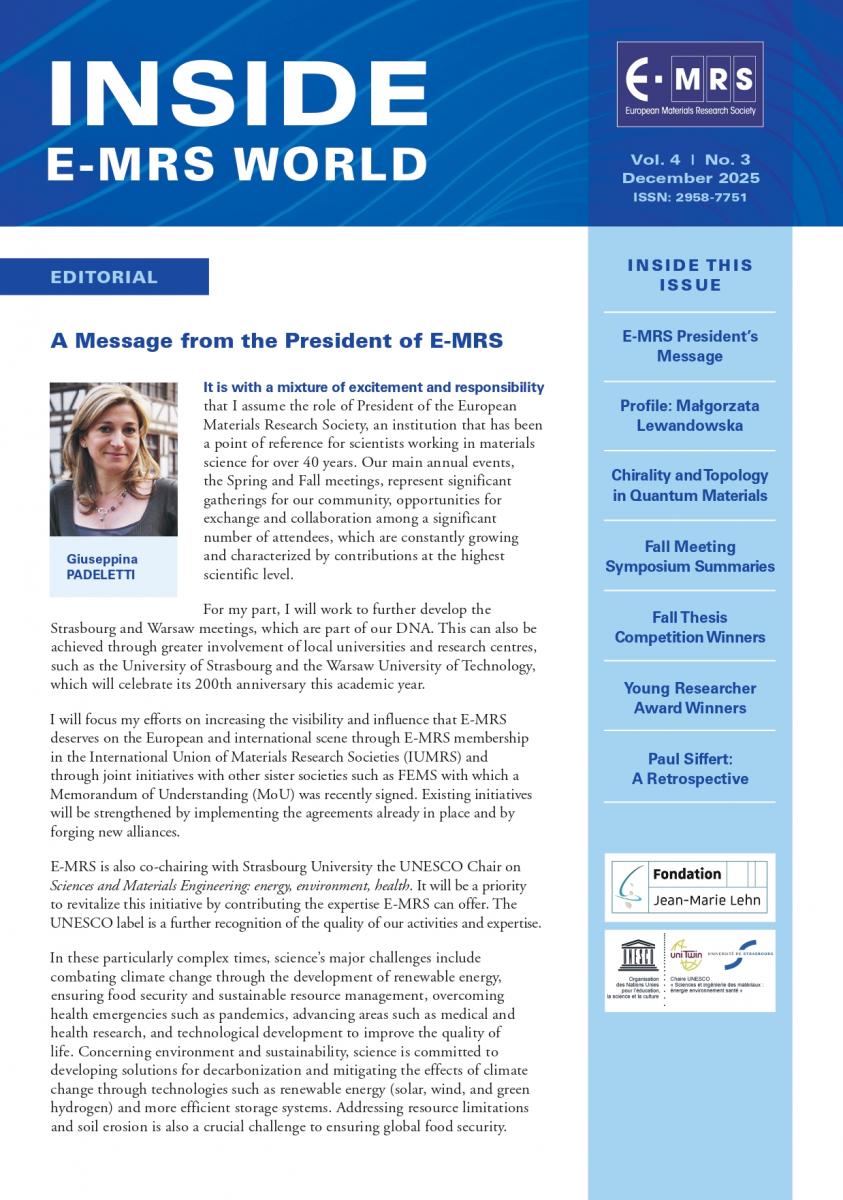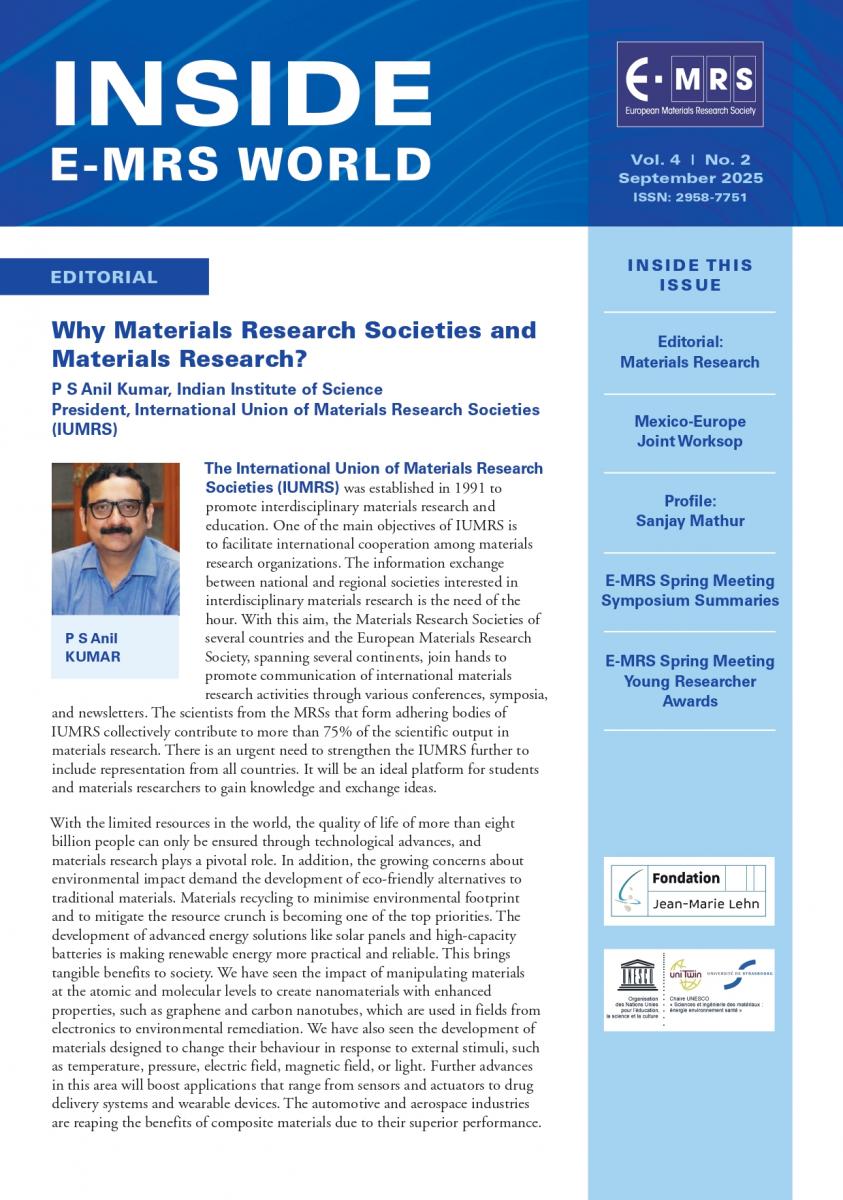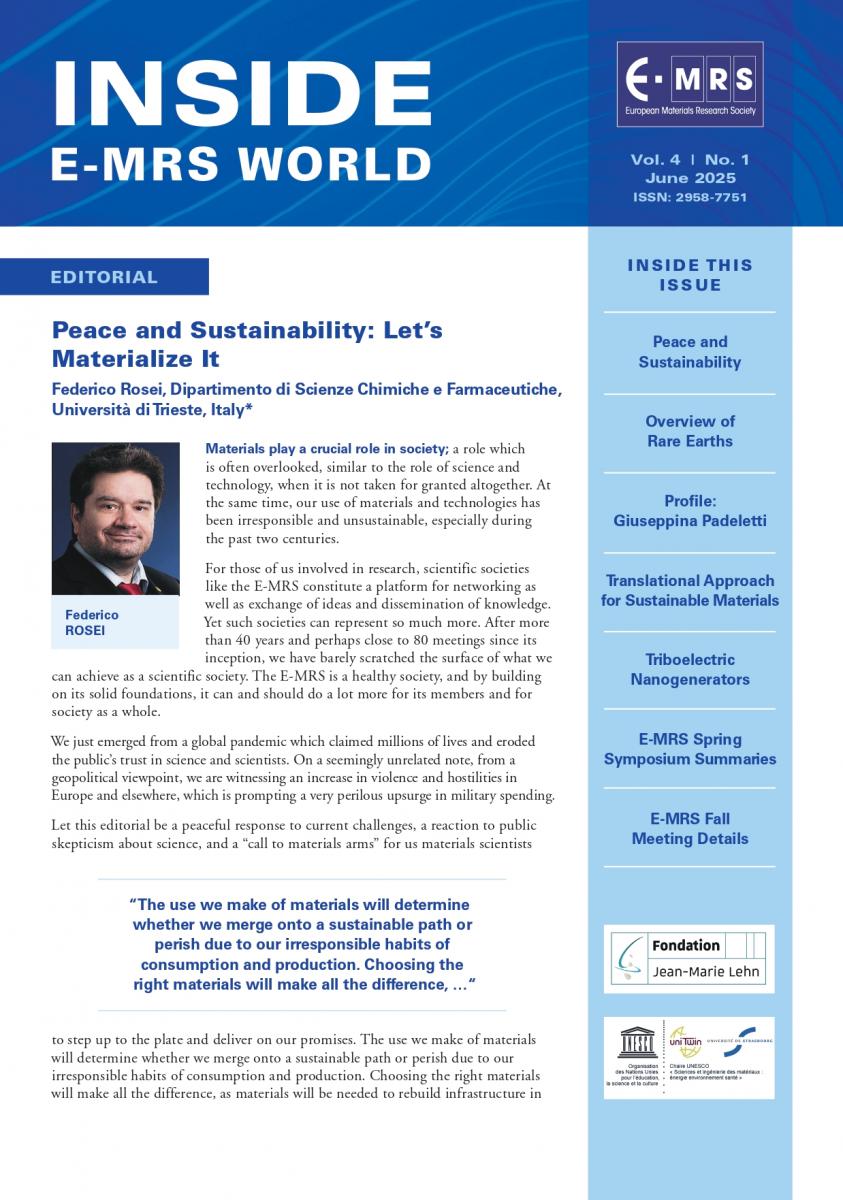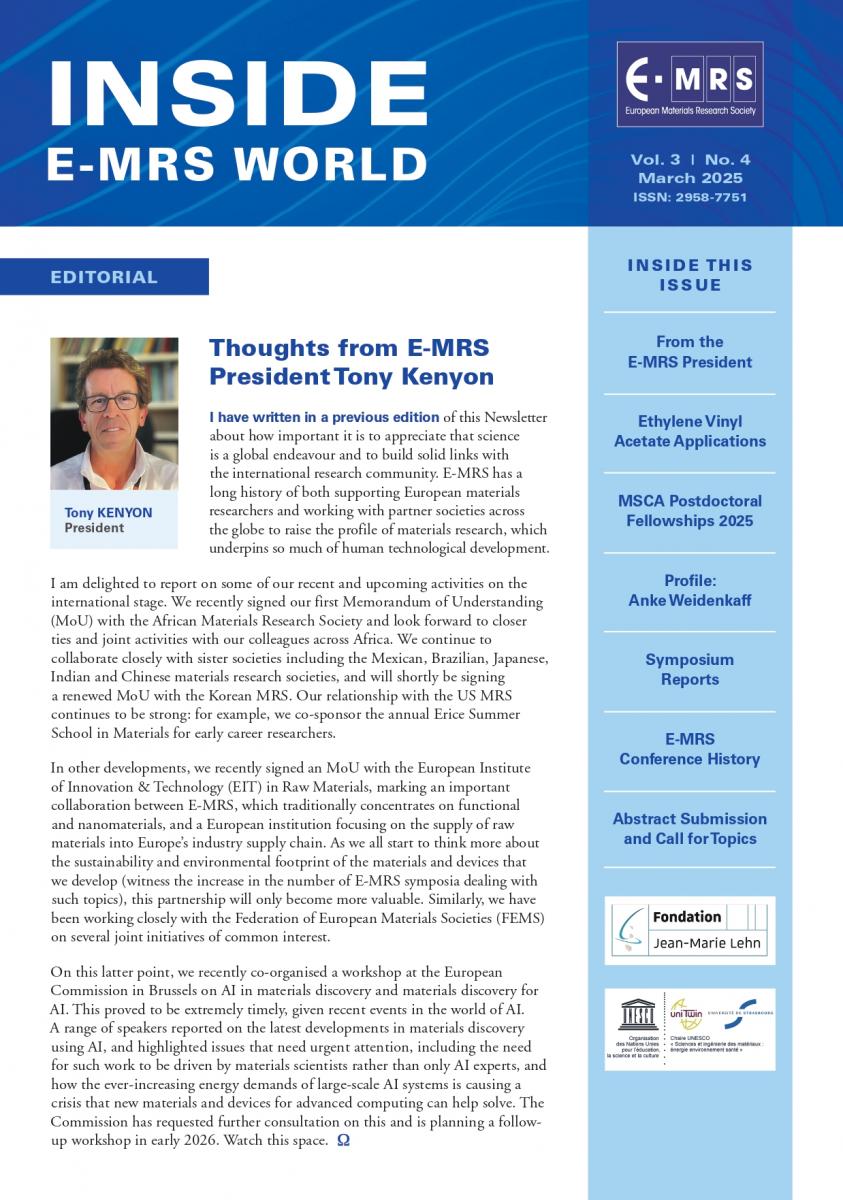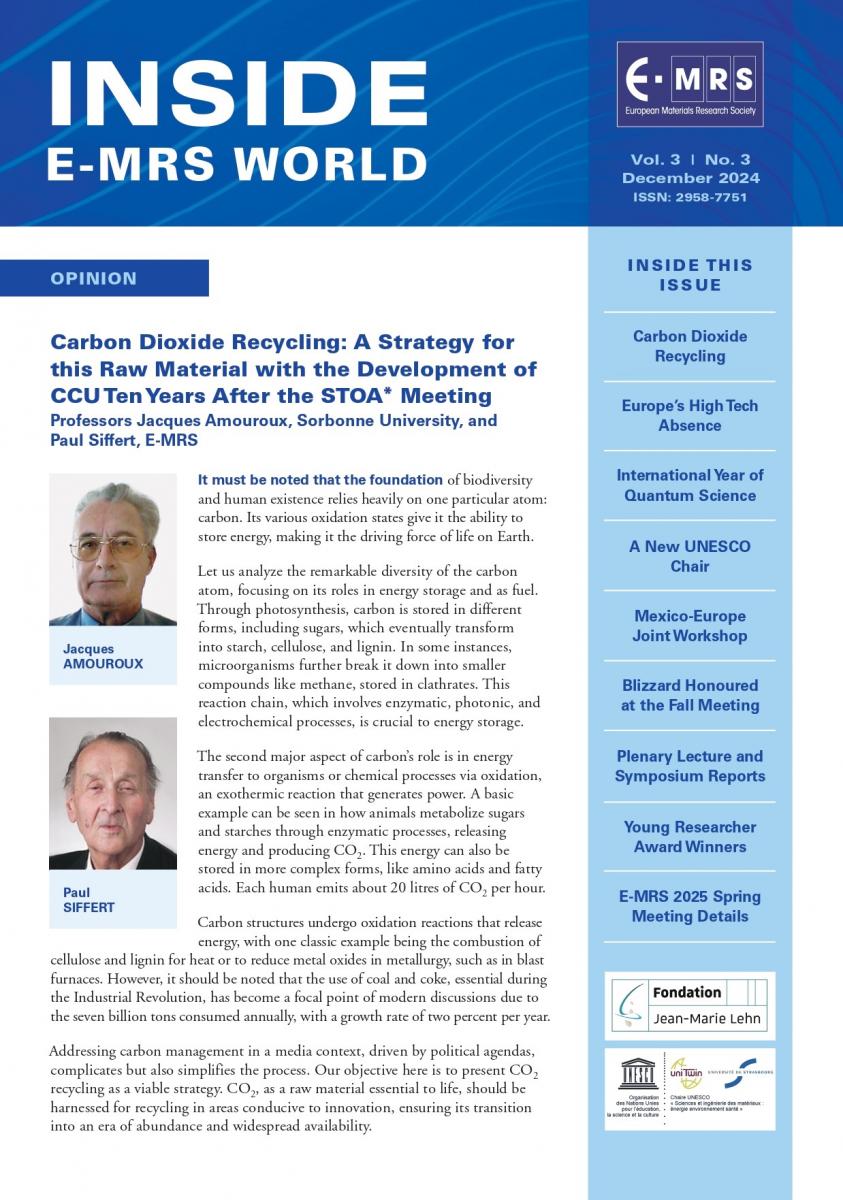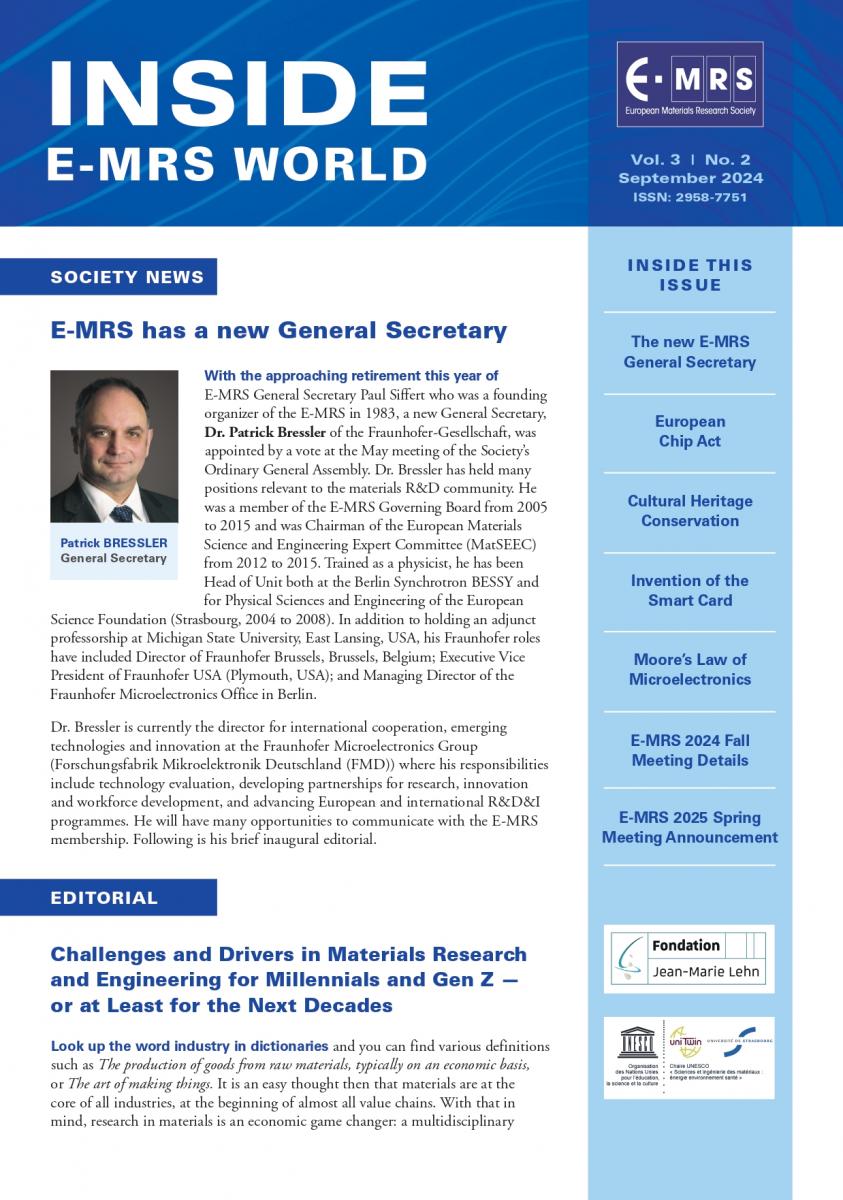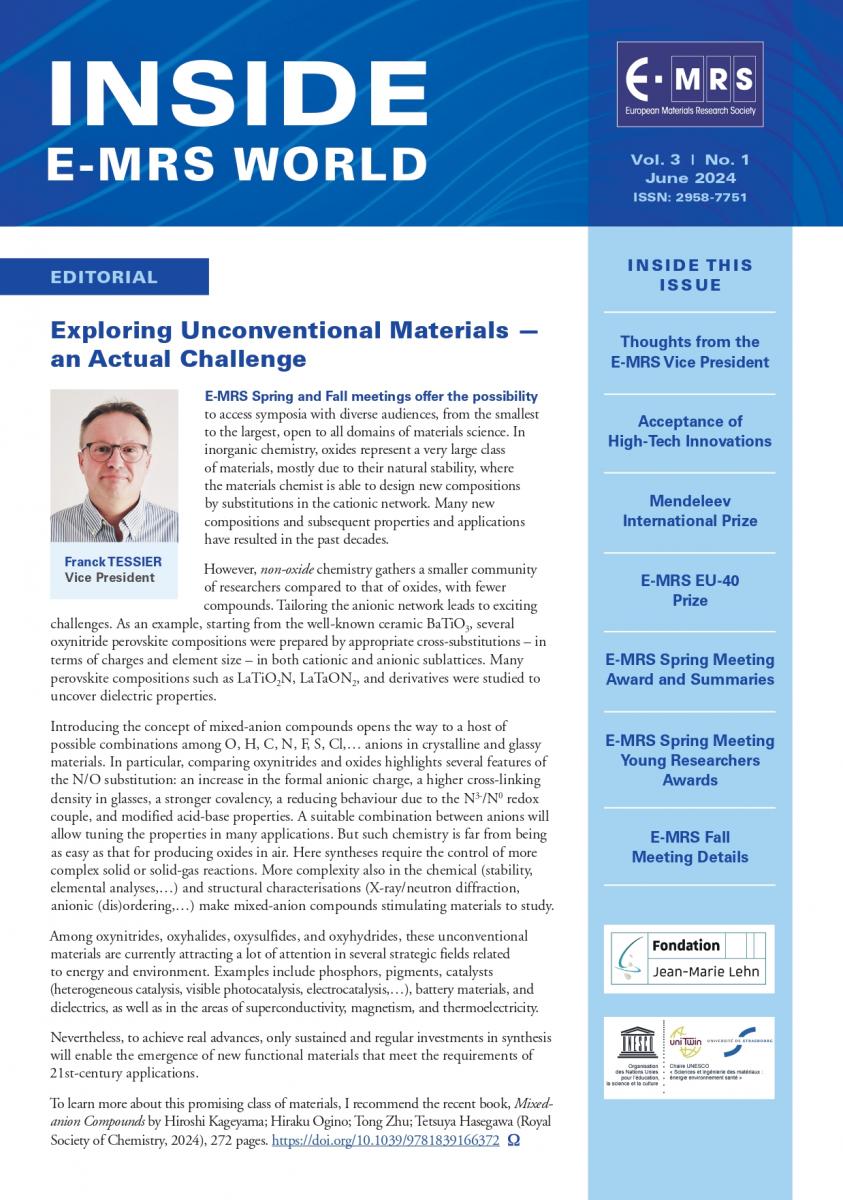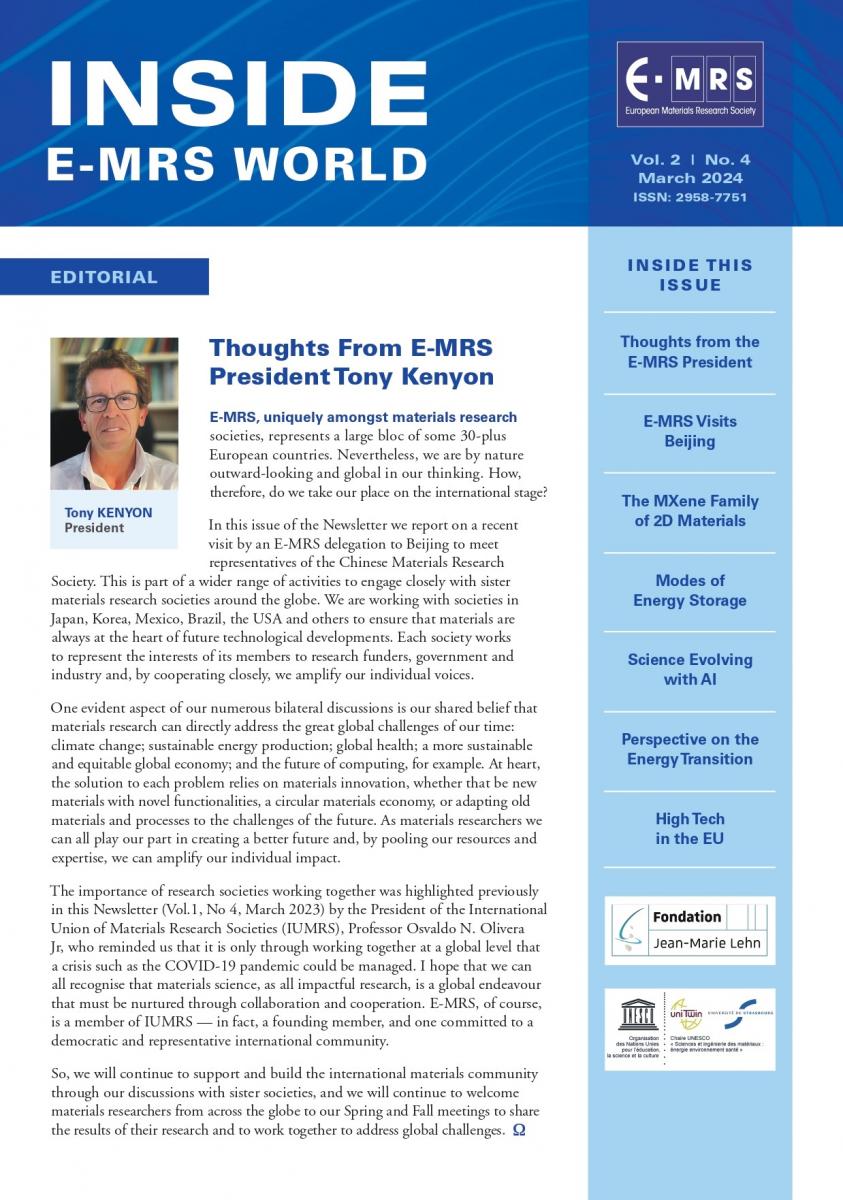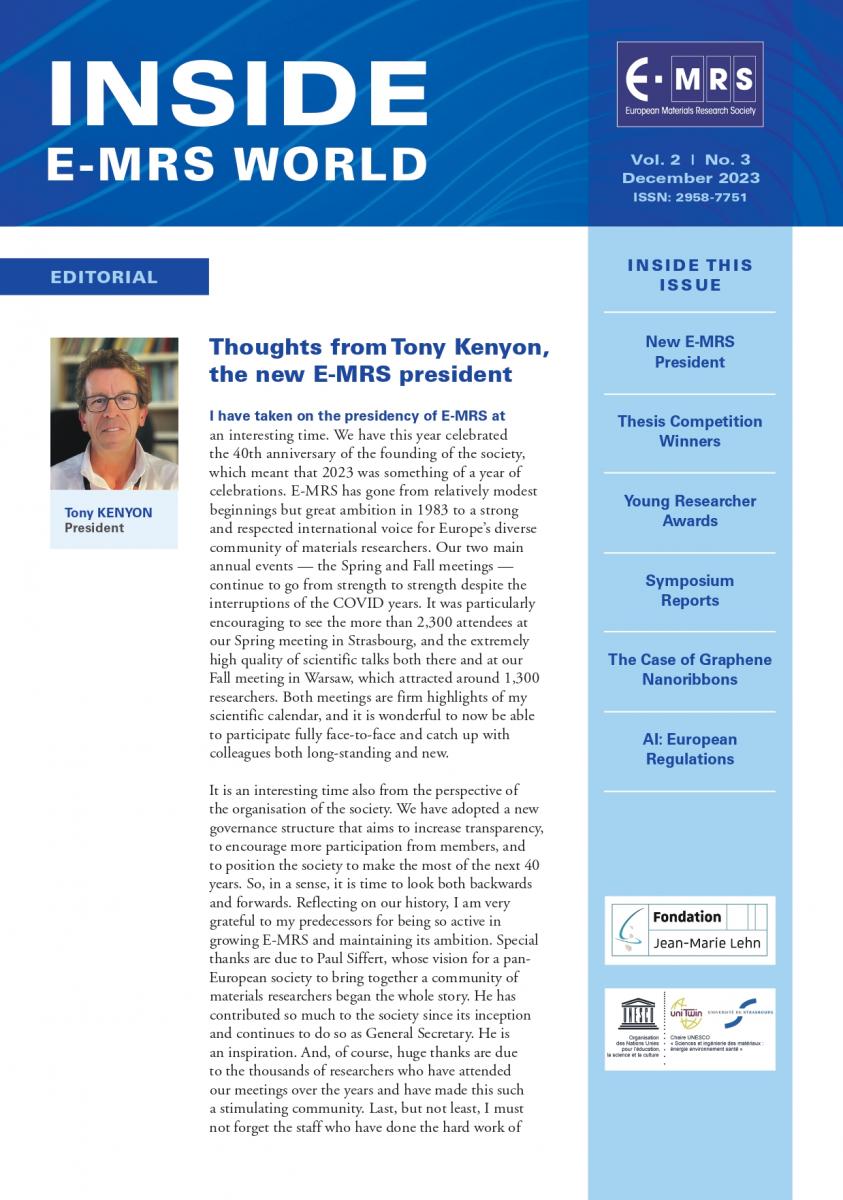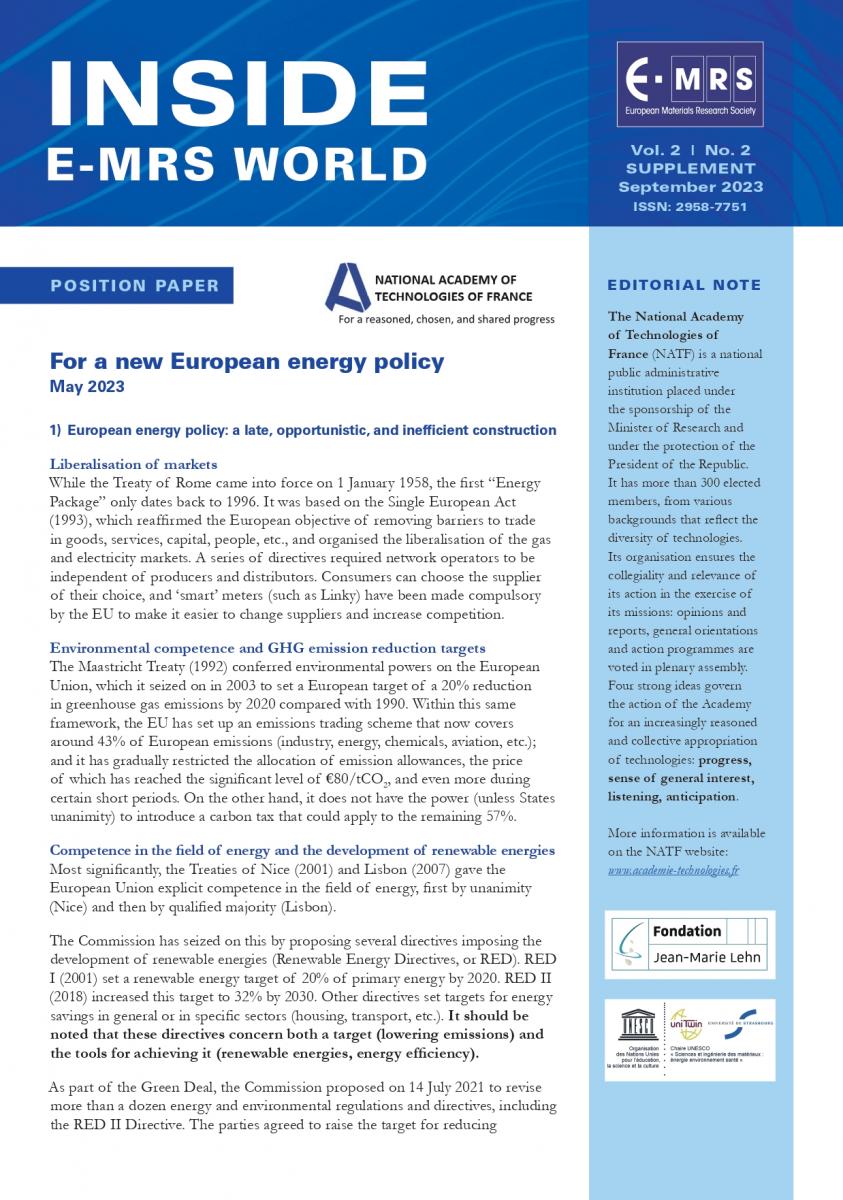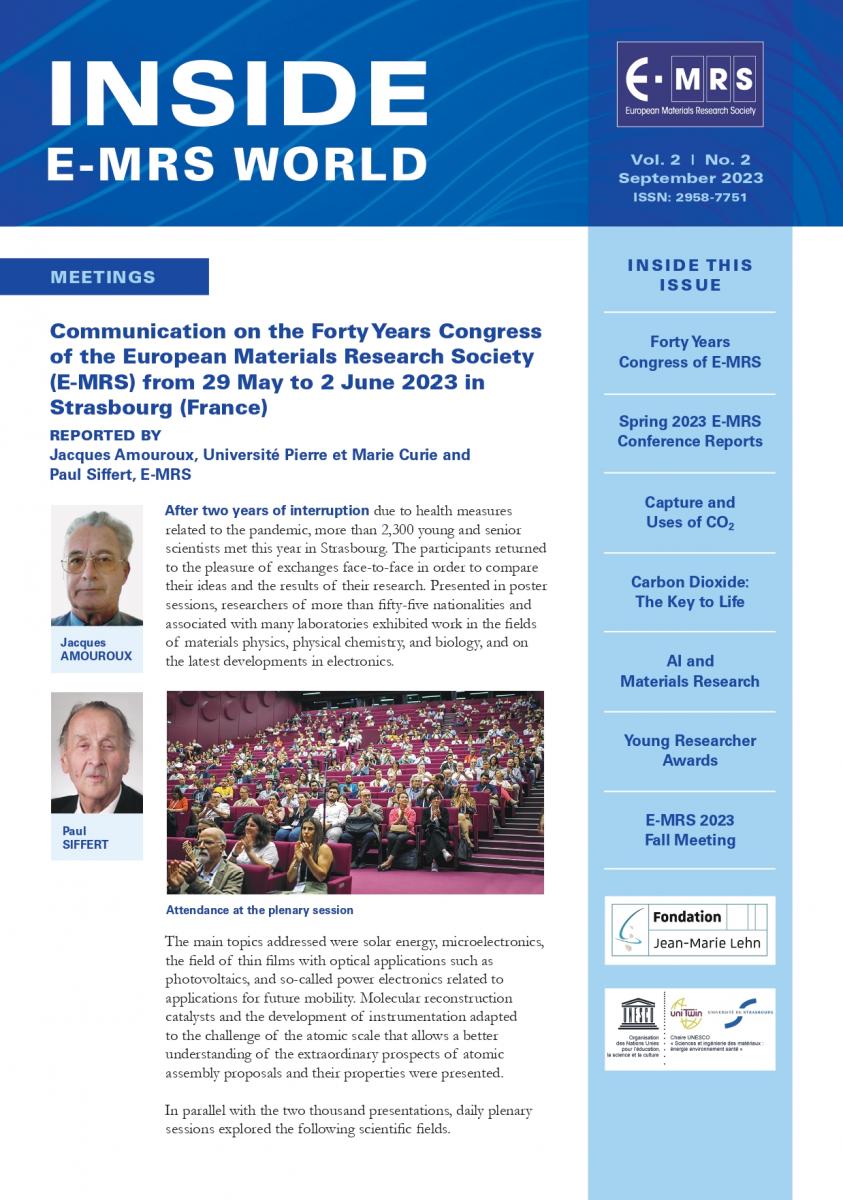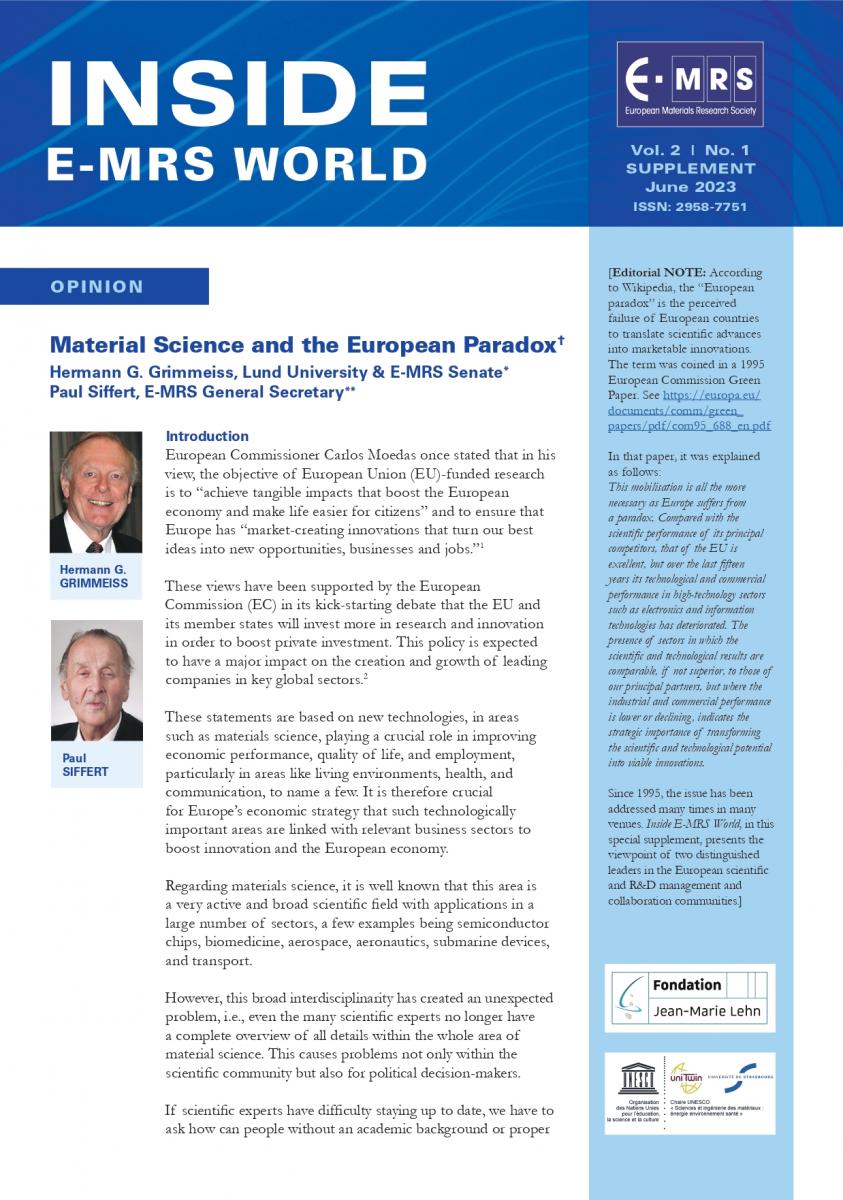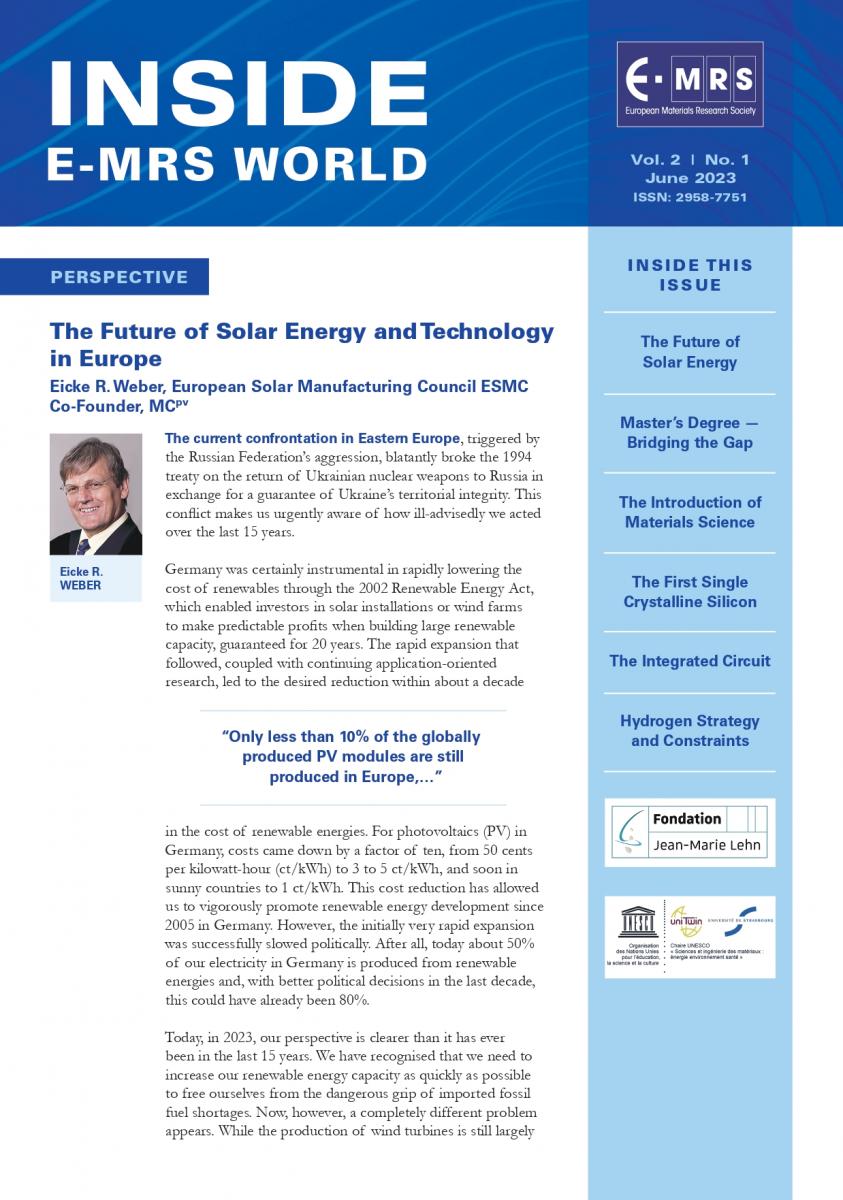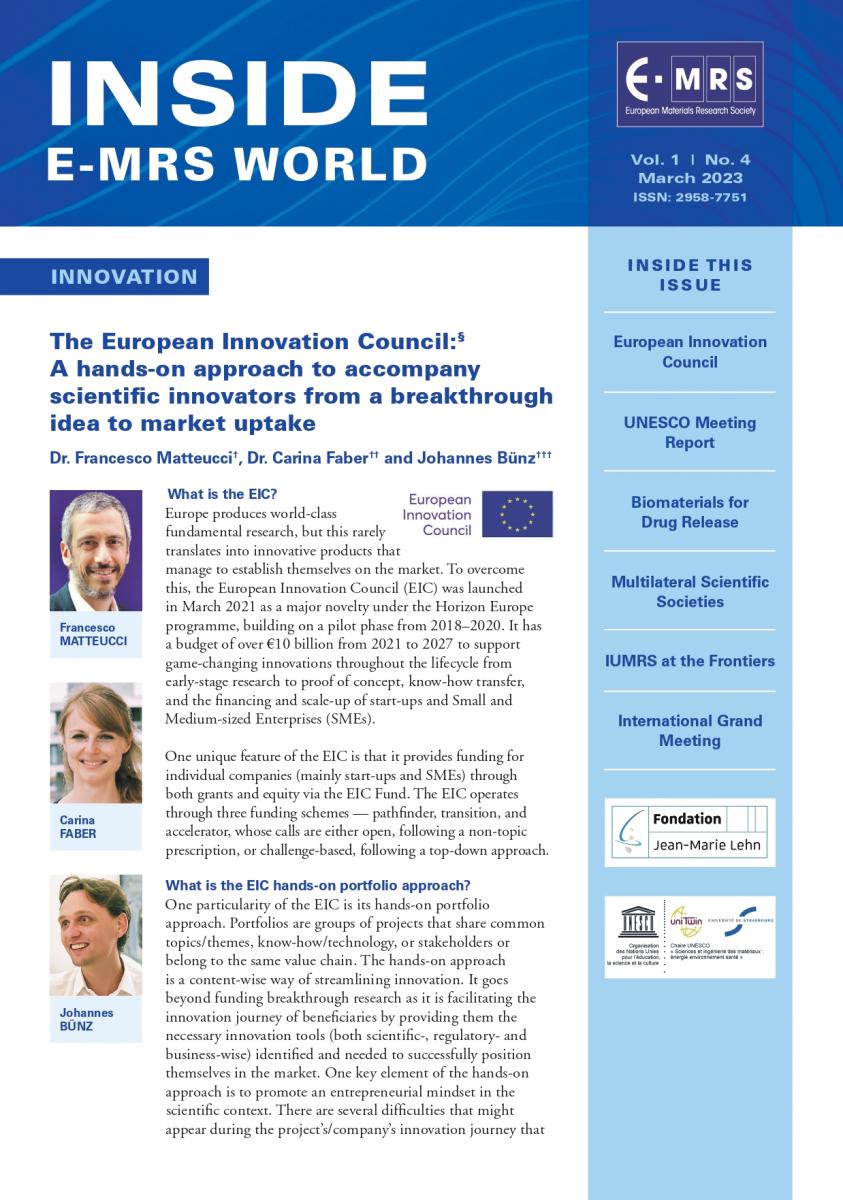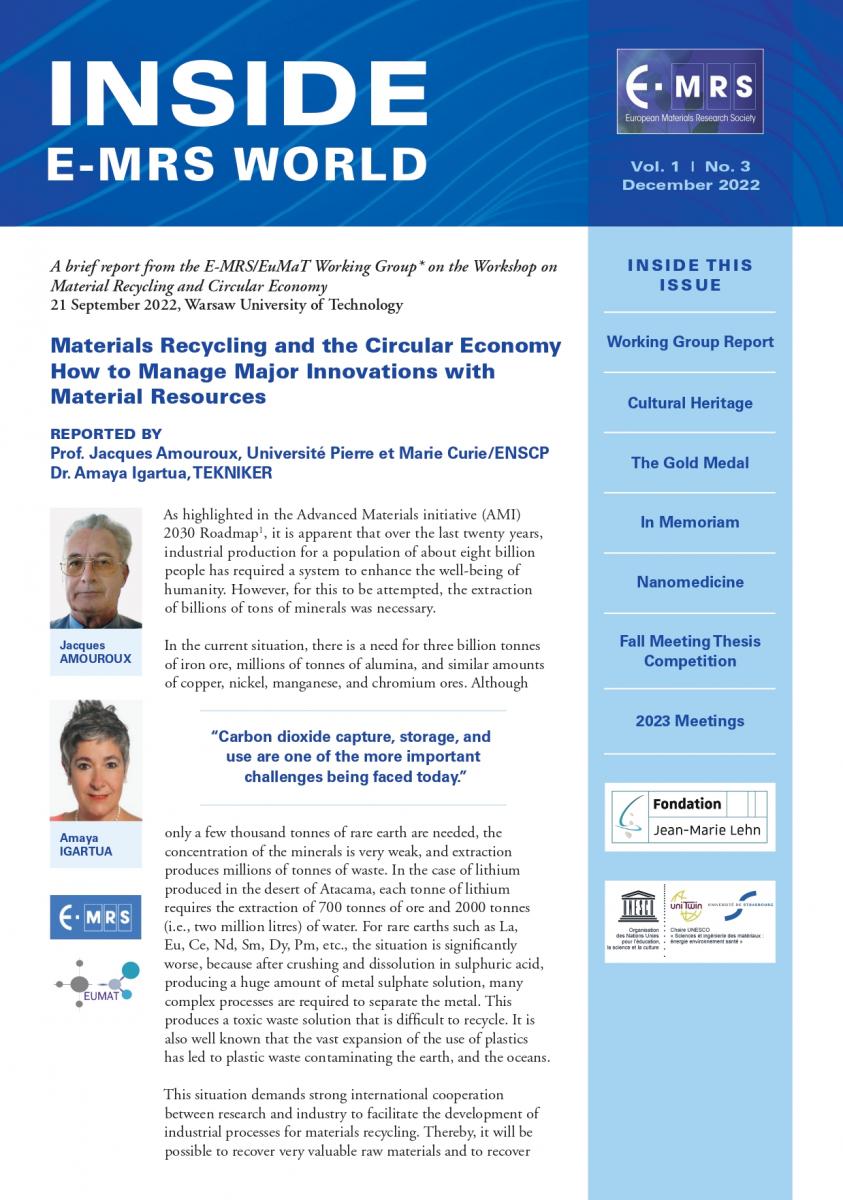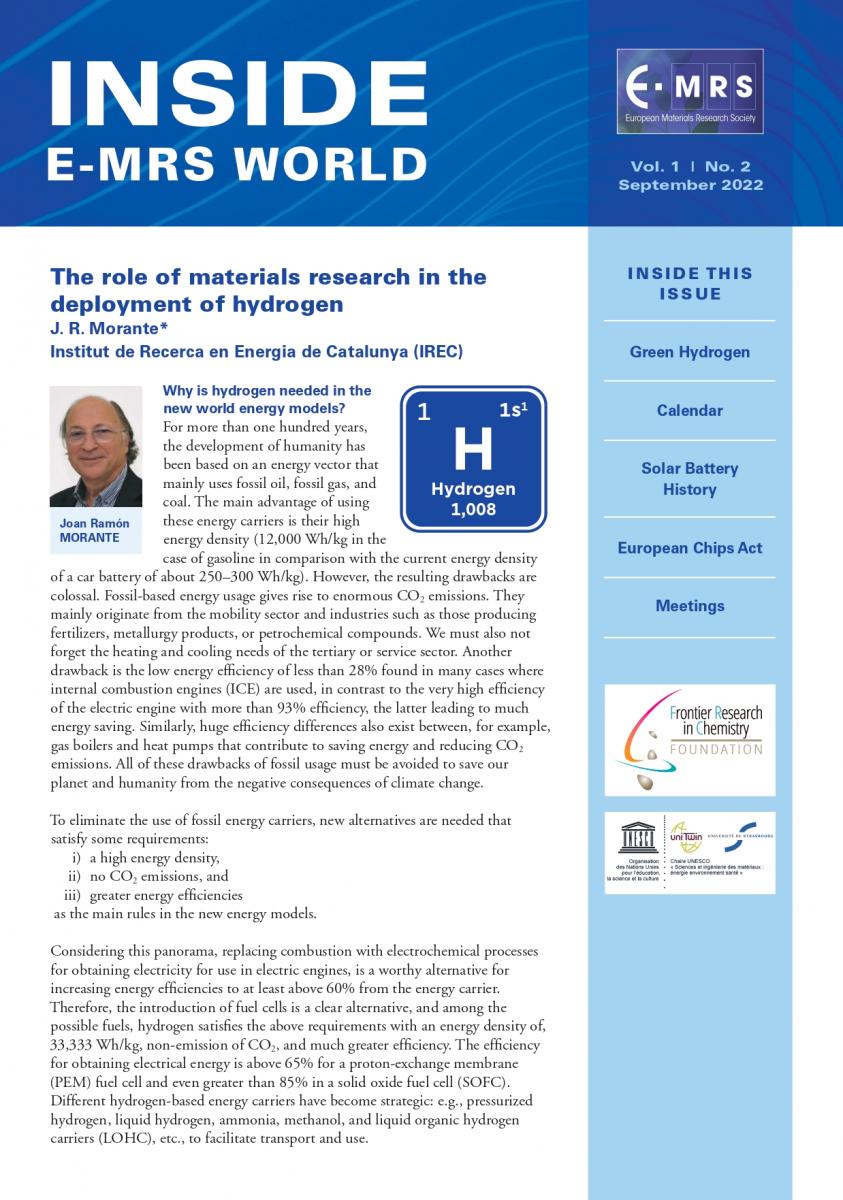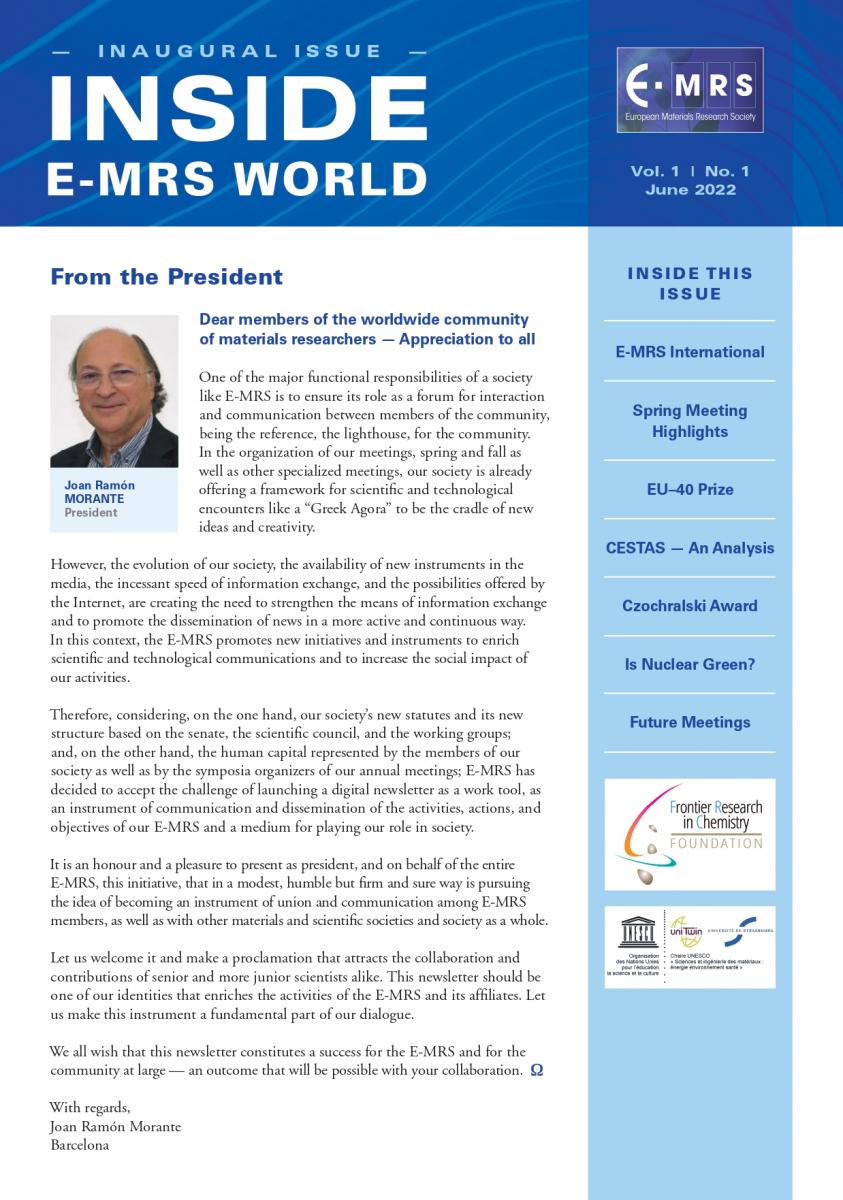Inside E-MRS World - Vol. 4 / No. 3 - December 2025
|
|
A Message from the President
|
|
 |
It is with a mixture of excitement and responsibility that I assume the role of President of the For my part, I will work to further develop the Strasbourg and Warsaw meetings, which are part of |
I will focus my efforts on increasing the visibility and influence that E-MRS deserves on the European and international scene through E-MRS membership in the International Union of Materials Research Societies (IUMRS) and through joint initiatives with other sister societies such as FEMS with which a Memorandum of Understanding (MoU) was recently signed. Existing initiatives will be strengthened by implementing the agreements already in place and by forging new alliances.
E-MRS is also co-chairing with Strasbourg University the UNESCO Chair on Sciences and Materials Engineering: energy, environment, health. It will be a priority to revitalize this initiative by contributing the expertise E-MRS can offer. The UNESCO label is a further recognition of the quality of our activities and expertise.
In these particularly complex times, science’s major challenges include combating climate change through the development of renewable energy, ensuring food security and sustainable resource management, overcoming health emergencies such as pandemics, advancing areas such as medical and health research, and technological development to improve the quality of life. Concerning environment and sustainability, science is committed to developing solutions for decarbonization and mitigating the effects of climate
change through technologies such as renewable energy (solar, wind, and green hydrogen) and more efficient storage systems. Addressing resource limitations and soil erosion is also a crucial challenge to ensuring global food security.
Finding more sustainable ways to manage limited resources such as water for human, agricultural, and industrial use, is also a key objective. Digital technologies are crucial to addressing future challenges, from data management to complex systems. Materials science is transversal to all these sectors and can greatly contribute to their development. These are the directions in which E-MRS must invest and direct scientific research.
At this stage, my sincere and heartfelt thanks are due to those who preceded me and who contributed to the success of E-MRS, and in particular to Tony Kenyon, with whom I was able to collaborate closely as Vice President. A special thanks goes to Paul Siffert for having conceived and then created E-MRS and for having served as its General Secretary for more than 40 years. I am very grateful and happy to be able to work with and count on the current Vice Presidents and the current General Secretary, with whom we have achieved excellent teamwork, a fundamental condition for facing the challenges that lie ahead.
And within this framework, the fundamental and ongoing contribution of Sylvain Schoeffter in Strasbourg and Agnieszka Rytel in Warsaw is particularly valuable and deserves to be highlighted and recognised. They ensure the smooth, harmonious, and professional execution of the increasingly challenging and engaging Spring and Fall meetings.
I would also like to emphasize that the true strength of E-MRS lies in the valuable community of researchers and scientists who, with their enthusiasm, passion, professionalism, and expertise, are the true and irreplaceable backbone of our Society. It is to them that I extend a renewed invitation to participate more fully in the life of the E-MRS by taking part in the Working Groups and Board of Delegates, and by proposing initiatives to the Headquarters, because society needs you. You are the future of the Society. From our side, we will be committed to encouraging and motivating young generations, continuing to reward the best contributions of young scientists, and imagining other initiatives in the future to involve the young generations even more. (...)
All issues can be downloaded here:



